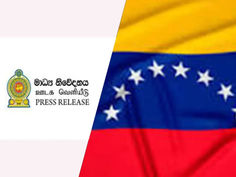Checkmate: Taliban Bans Chess in Latest Sports Crackdown
- Khoshnaw Rahmani

- Jul 30, 2025
- 3 min read
Khoshnaw Rahmani, Jadetimes Staff
K. Rahmani is a Jadetimes news reporter covering sport.

Executive Summary
In May 2025, Afghanistan’s Taliban authorities suspended all chess activities nationwide, invoking religious concerns that the game promotes gambling. Spokesperson Atal Mashwani announced the ban, dissolved the Afghanistan Chess Federation, and cited “leadership issues” within its ranks1. Chess—long played in cafés, parks, and schools—now joins a growing list of prohibited pastimes under the Taliban, including MMA, mixed-gender gyms, and kite flying. This article provides an in-depth examination of the ban, traces chess’s millennium-long history in Afghanistan, compares similar global prohibitions, and assesses the social impact of silencing this ancient strategic pursuit.
1. The 2025 Suspension: Facts and Official Rationale
On May 11, 2025, the Taliban’s General Directorate of Physical Education and Sports formally announced chess would be “suspended until further notice” over “religious considerations” and alleged gambling links. Spokesperson Atal Mashwani told AFP that Islamic law (Sharia) classifies chess as “a means of gambling,” and that the game would remain banned pending a final religious ruling. The Afghanistan Chess Federation had not held sanctioned events for two years and was officially dissolved, halting both men’s and women’s competitions1.
2. A Millennium of Play: Chess in Afghanistan’s Cultural Fabric
Chess, derived from the Persian shatranj, spread into Afghanistan over 1,300 years ago during the Abbasid Caliphate, becoming a fixture in caravanserais and royal courts.
In medieval times, Afghan nobles and scholars played on ivory and carved-wood sets, with early treatises on strategy carried along Silk Road exchanges.
After 2001, the Afghanistan Chess Federation (ACF) revived national leagues, hosting interprovincial tournaments that welcomed male and female players alike. By 2010, café-style blitz games and school clubs were common in Kabul, Herat, and Mazar-i-Sharif.
FIDE records show Afghanistan fielded teams at Chess Olympiads in 2004 and 2006; the ACF boasted two FIDE Masters and several 2,000+-rated players by 2006.
Despite chronic underfunding—early ACF reports noted only five mechanical clocks for tournaments—the game thrived as both community pastime and educational tool.
3. Timeline: Chess and Its Bans
Year | Event | Notes |
1979–1988 | Iran bans chess post-revolution, reinstated on anti-gambling terms | Ayatollah Khomeini overturned initial prohibition in 1988. |
1996–2001 | First Taliban regime outlaws chess | Chess boards and books were confiscated; public play banned. |
2002–2021 | Post-2001 revival | ACF organizes men’s and women’s national championships. |
May 2025 | Taliban suspends chess nationwide | Announces dissolution of ACF; suspends all chess events. |
4. Comparative Bans: When Kings and Ideologues Castled the Game
Chess has faced prohibition elsewhere, often on moral or political grounds:
Iran (1979–1988): Banned as un-Islamic and linked to gambling; reinstated under religious oversight in 1988.
China (1966–1976): Cultural Revolution saw Western cultural imports—including chess—suppressed as symbols of capitalism; the ban lifted in the late 1970s.
Saudi Fatwa (2016): Grand Mufti Abdulaziz al-Sheikh declared chess “haram,” though no formal nationwide ban ensued.
Taliban First Rule (1996–2001): Chess was one of many proscribed activities; public enforcement varied by region.
Unlike state bans on combat sports or media, chess prohibitions often hinge on perceived moral corruption rather than physical danger.
5. Social Impact: From Club Closures to Silent Boards
5.1 Coaches and Clubs
More than 40 registered chess clubs in Kabul, Herat, and Kandahar have shut their doors, confiscating equipment and ceasing lessons overnight.
Coaches report risking arrest for clandestine training sessions; many have fled or gone underground.
5.2 Players and Gender Equity
Afghan women—already barred from public sports—lose one of the rare mixed-gender competitive outlets.
Youth development programs using chess to teach problem-solving and peacebuilding have been defunded.
5.3 Cultural and Economic Ripples
Café owners like Azizullah Gulzada lament lost revenue from informal chess meet-ups, once drawing dozens daily.
Educational initiatives integrating chess into math and critical-thinking curricula are on hold, affecting classroom engagement.
6. Resistance and Adaptation
6.1 Underground Play
Informal networks now convene in private homes and rural madrassas, sharing boards and rulebooks quietly. Encrypted messaging apps facilitate clandestine tournaments.
6.2 Digital Persistence
Online chess platforms offer Afghan players a lifeline, though fear of surveillance has driven many to adopt pseudonyms and VPNs.
6.3 International Solidarity
FIDE has appealed to Taliban authorities and offered to host remote training and provisional recognition of Afghan teams.
Diaspora organizations in Europe and North America are fundraising for equipment smuggling and virtual coaching.
7. Conclusion: Checkmated Yet Unbroken
The Taliban’s 2025 chess suspension cuts deep into Afghanistan’s cultural and intellectual heritage. Yet history shows that prohibitions only fuel adaptive resilience. As underground games persist and global chess bodies advocate, the silent boards may yet spring back to life—proving that even when rules fall, the human drive for strategic play endures.











































Comments